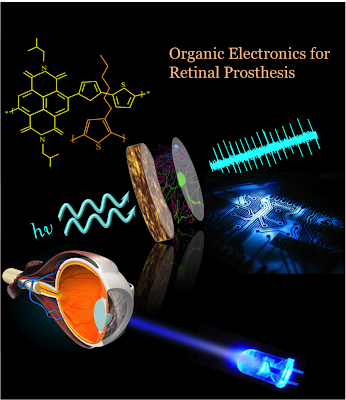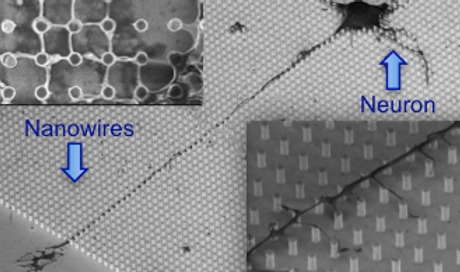NeuroElectronics lab

Retinal Prosthesis
The development of bioelectronic retinal implants is aimed towards eliciting visual perception in the retina by electrically stimulating the retina either subretinally from the pigment epithelial side or epiretinally from the ganglion cell side. Conjugated semiconducting materials have a unique combination of mechanical and optoelectronic properties, which can be utilized for advanced bioelectronic and neuroprosthetic interfaces, in particular for artificial retina solutions. The exciting similarities of the photoresponse of such structures with that of the natural vision systems, point to the biointerfacing of these polymers with visual systems and to use them as artificial photoreceptors to elicit neuronal activity in a blind retina. Our research has highlighted that semiconducting polymers could be used as an active photosensitive platform to stimulate blind retinas.

NeuroEngineering
Engineering neuronal circuits on artificial substrates using pre-determined external cues and surface parameters provides insights into designing regenerative scaffolds to interface with the nervous system. Advanced fabrication techniques in materials science are increasingly being used to create micro- and nano- scale surface topographies (like grooves and pillars) for directing the growth of neuronal processes. Our group has been growing neuronal cell cultures on various nanomaterials and devices fabricated in our lab. Our results show that nanopillar topography act as biophysical cues for neuronal growth, resulting in a directional growth of the processes and highly interconnected neuronal network. We are also evaluating the physiological properties of the neuronal network using the latest tools in neuroscience.
